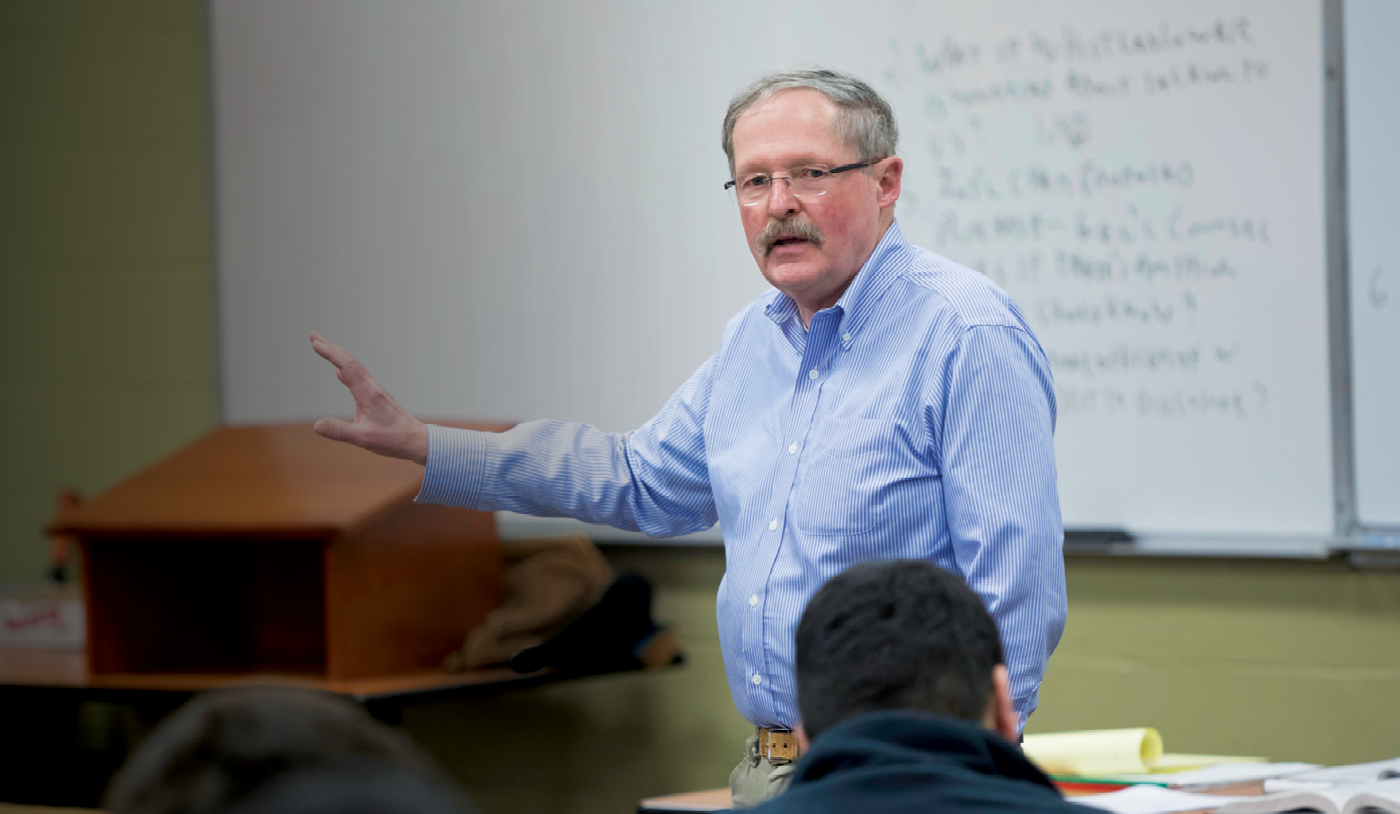
Social Justice Icon and Beloved Professor Bruce Miller Retires
After Four Decades at School of Law
By Kenneth Stratton '19/2L
Professor Bruce Miller, who has been teaching law at Western New England University School of Law for the last 40 years, is retiring at the end of the 2019-2020 academic year. While Professor Miller looks forward to retirement, for someone who has been politically engaged since he was 12, stepping out of the batter’s box will be easier said than done.
Motivated by the political climate of the 1960s and his love of history, philosophy, and literature, Miller worked his way to Harvard Law. “I loved the assignments, I just hated the classes. I couldn’t wait to be a lawyer,” Miller explains. What he did enjoy was serving as a teacher’s assistant for a civil procedure class in his third year. That opportunity whet his appetite for teaching, and when it became his profession, he vowed to give his students a vastly different experience.
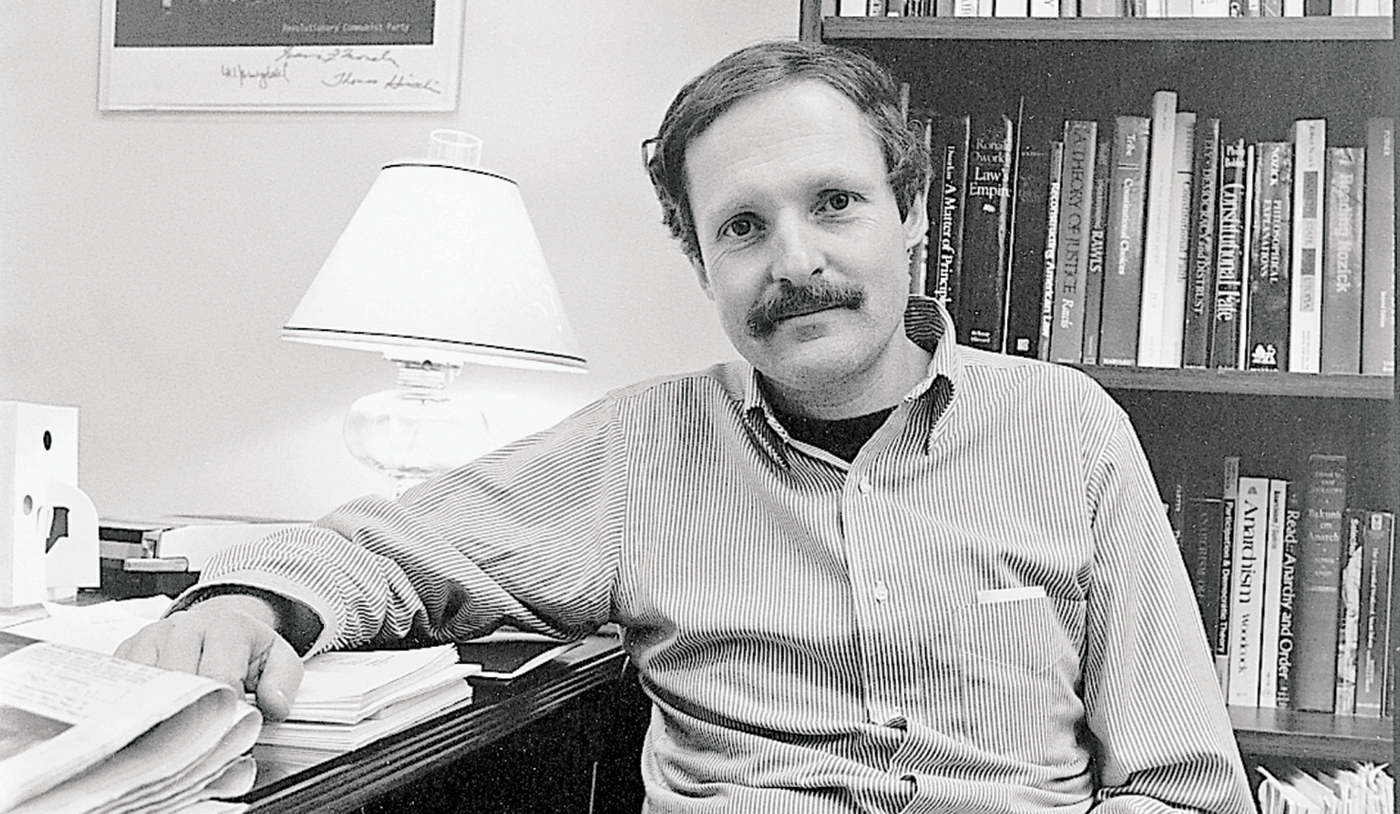
Miller began his career with the U.S. Department of Health, Education, and Welfare as a legal services lawyer, working on issues such as school desegregation and the national welfare rights movement. Starting in 1969, just after Richard Nixon’s inauguration as President, Miller remembers expecting an upheaval in the department, only to be reassured that the continuity and stability of their work would remain.
“People stand for the rule of law here,” Miller remembers his boss telling him. “Just by doing our jobs, we were able to stop Nixon from doing some of what he wanted to do,” Miller says.
Later, Miller accepted a job in Los Angeles at the National Senior Citizens Law Center, working with the elderly poor. He spent much of his time focused on Social Security, supplemental security income, and private pension law.
“There was nobody senior to me, so I was responsible for any litigation I brought,” Miller recalled. He was traveling the country, working in the federal courts on behalf of the elderly poor, and—with no litigation experience prior to that point—quickly developing and learning. This experience confirmed what Miller already knew: “the law can be useful for social change.”
Outside of the impact litigation he worked on, Miller also focused on supporting local legal aid lawyers, which furthered his interest in teaching. By 1980, through what Miller calls “tremendous luck and privilege,” he found himself teaching at Western New England.
“Bruce’s and my affiliation with the Law School began around the same time,” says former student, Kathryn Calibey L’82. “He quickly became a mentor, advisor, and friend. As his teaching assistant, his passion for equal justice—particularly the notion that an individual’s economic status should not determine the justice he or she receives—was impactful,” Calibey explains.
“I could describe Bruce as empathetic, intelligent, knowledgeable, and indefatigable, and that description would be true, but incomplete. Indeed, if I had to choose just one word to describe him it would be disarming." - Howard Kalodner, Dean Emeritus, School of Law
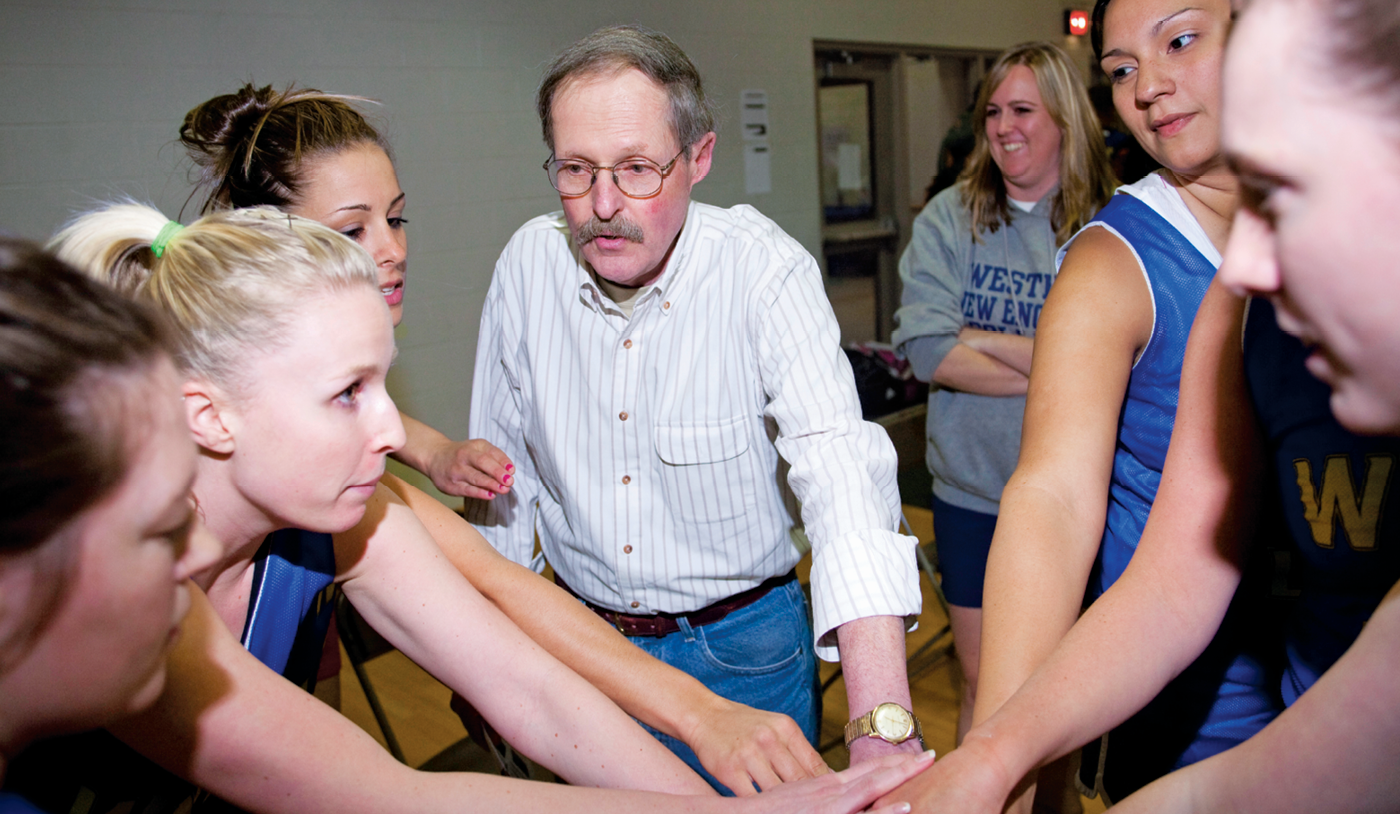
Miller was already impacting the lives of students at the School of Law, shaping the student-oriented community he felt was lacking in his own law school experience. But it would not have been possible without the trust of then Dean Howard Kalodner.
“He is a gifted rhetorician and a wonderful teacher. The lives of the faculty and his students have been enriched by his presence,” Kalodner added.
“I felt like this guy was going to be okay as a boss,” Miller says, recalling his first encounters with Kalodner. He went further to call the former dean an inspirational leader. He remembered that Kalodner favored an Ivy League approach to teaching the law, but it spoke a lot to his leadership style that he allowed Miller to follow the “Brucian” approach, and chart his own course. “I felt completely accountable to me, and that was right for me,” Miller says.
“Bruce is one of the smartest, funniest, and nicest people I know. From the beginning, he was a natural in the classroom, loved by his students and admired by his colleagues, me included,” says retired professor Leora Harpaz. She was on the committee that hired Miller and remembers that he had his own special way about teaching—which included energetically pacing back and forth in front of the classroom during the entire lecture.
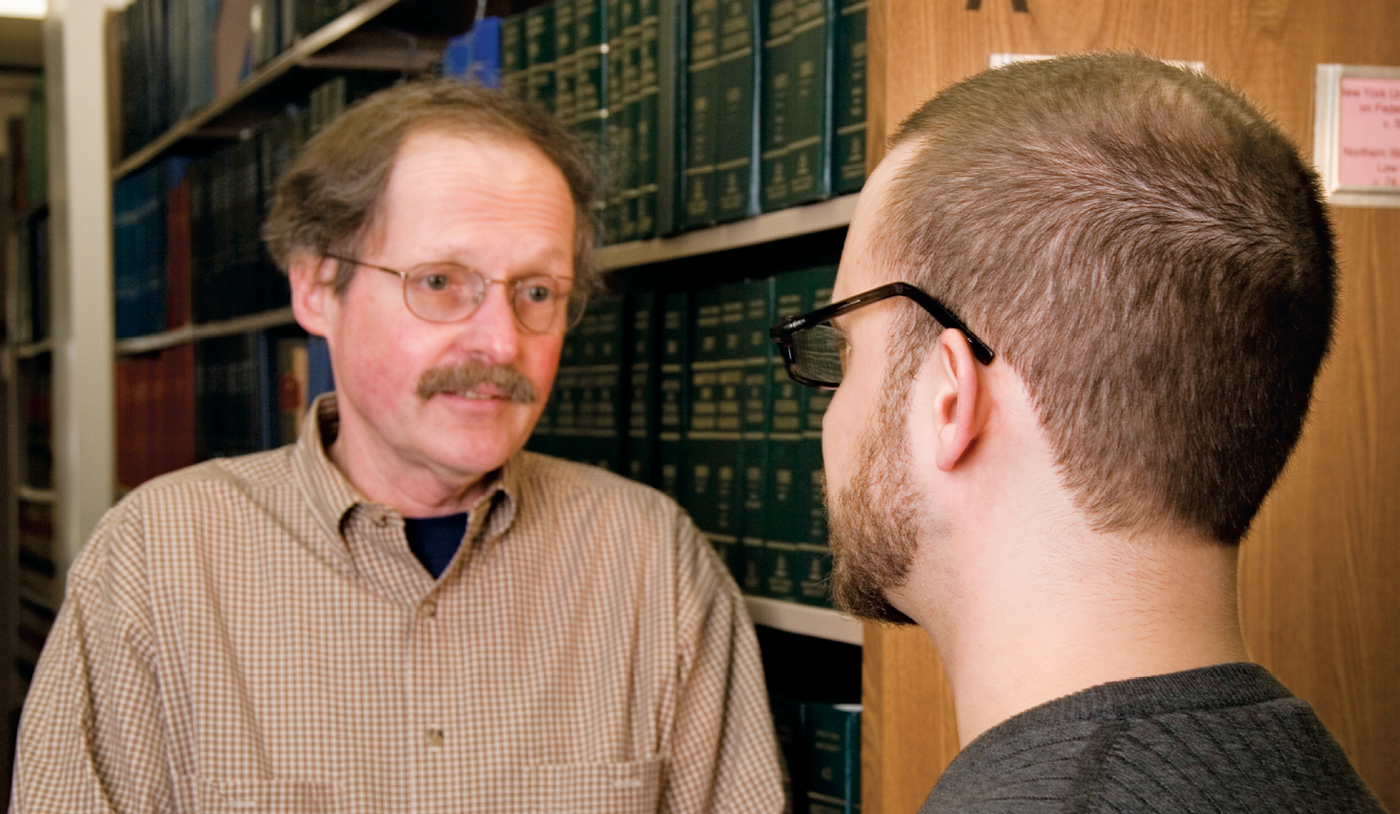
“He had that cool, West Coast vibe, and seemed like an unlikely transplant to the colder, less hip, more buttoned-down East Coast,” Harpaz says. She was quick to add, however, that she was wrong in this first impression. They taught together for over 30 years, and Harpaz knows well that the presence of Miller and his wife, Jane, have greatly benefited the community.
In all the years that he’s been with the School of Law, Miller has remained active in using the law for social change, continuing to impart his wisdom from experience on students.
“Professor Miller will always be a larger than life figure in my mind,” says Ryan Sullivan L’18. “Many of his lectures have stuck with me throughout the years—indeed, I can’t hear the term ‘diversity jurisdiction’ without thinking about Pete Rose,” Sullivan says, referring to the renowned Miller lecture in which he brings his love of baseball and civil procedure together to discuss the case of Rose v. Giamatti.
“From Professor Miller, I learned to think more deeply and more fully about everything. I am forever grateful for having been his student,” says Sullivan.
“Professor Miller will always be a larger than life figure in my mind. Many of his lectures have stuck with me throughout the years.” - Ryan Sullivan L’18
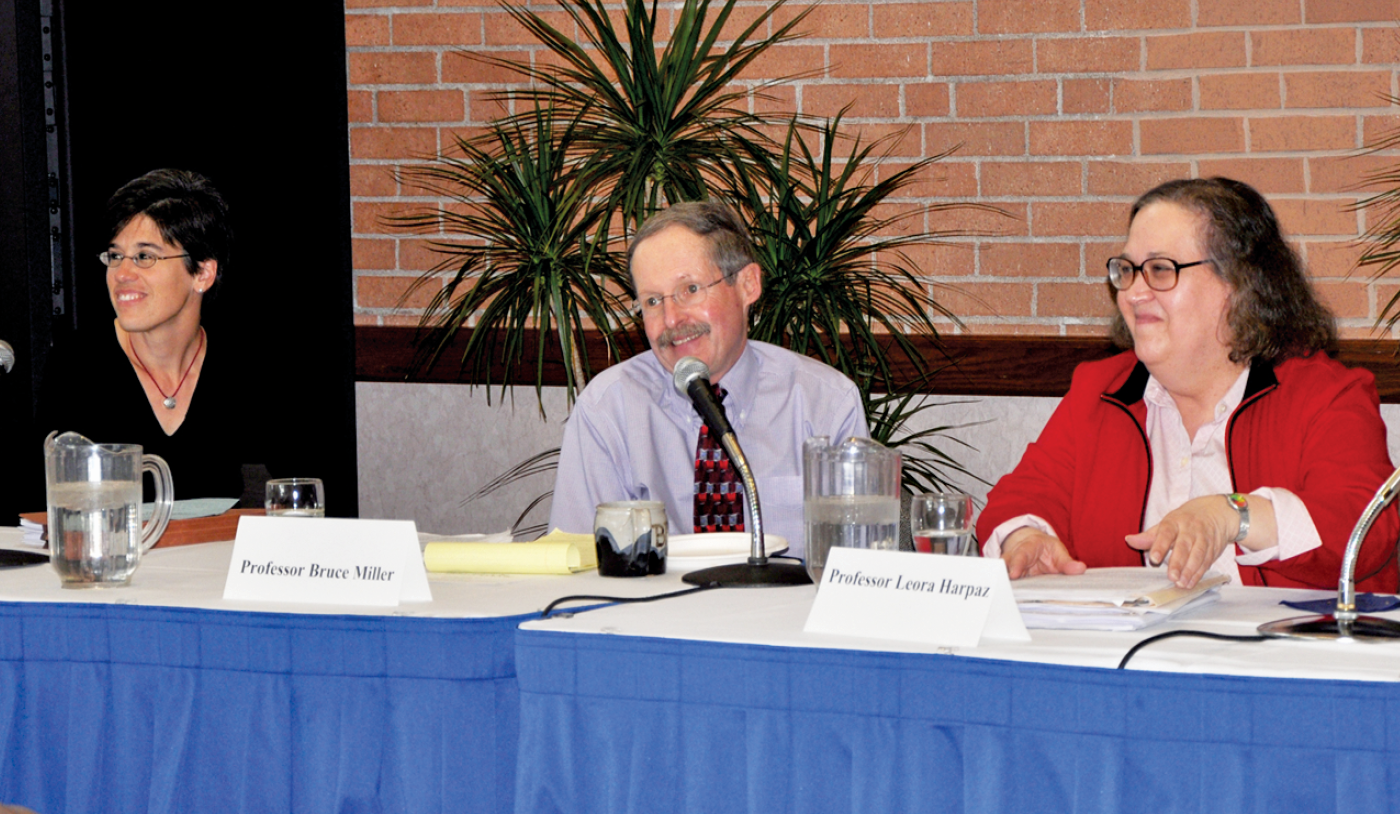
“A wise adviser, an intimate friend who is a sage counselor,” Thomas DeBose L’10 says of Miller. The alumnus explains that he and Miller formed a close relationship while working on a Law Review note together. “No Virtue In Passivity—It was the title of the note he wrote, and it’s a creed for him more than a title for a note,” DeBose says. “He has strong opinions and didn’t flinch away from sharing them,” his former student explains, adding that Miller taught him it was possible to disagree without being disagreeable.
Miller is certainly far from passive in his social justice work. He has been a trustee of the Rosenberg Fund for Children since 1990. He is president of No More Guantanamos, and has supported legislation requiring healthcare providers to not participate, directly or indirectly, in the abusive treatment or interrogation of prisoners. In recent years, Miller has held several talks at the School of Law, on topics including freedom of speech, immigration and security related travel restrictions, and impeachment.
“Bruce is one of the smartest, funniest, and nicest people I know. From the beginning, he was a natural in the classroom, loved by his students and admired by his colleagues, me included.” - Leora Harpaz, Professor Emerita
The Center for Social Justice
Furthering its commitment to social justice, the School of Law recently launched the Center for Social Justice, whose mission is to work toward advancing social justice through research, advocacy, education, and public engagement. The Center seeks to harness the expertise of faculty, the energy and interests of students, and a variety of resources from community organizations, all in the effort to serve the underserved. It provides opportunities for law and other University students to participate in hands-on experience working for social justice through advocacy, scholarship, and legislative engagement.
The Center for Social Justice addresses the following areas of social justice inquiry and advocacy:- Civil rights and international human rights, as well as environmental and climate justice, and advancing the rights of indigenous peoples
- Community economic development, economic justice, financial literacy and self-sufficiency, and consumer rights
- Elder law and the issues facing the aging population in our community
- Gender equity and other legal issues confronting the LGBTQI community
- Immigrants’ rights on a local and national level
- Racial justice issues, including criminal justice reform
Current projects in the Center for Social Justice include the Committee for Public Counsel Services (CPCS) Children and Family Law (CAFL) pipeline program, which provides training for representing children and parents in protection cases; the Immigrant Protection Project, where pro bono efforts work to satisfy the unmet needs of immigrants in the region and on the U.S.-Mexican border; returning calls on the American Civil Liberties Union of Western Massachusetts Law hotline; and high school pipeline programs, which include mock trial, mentoring, camps, and internship opportunities.
Learn about news and events at wne.edu/social-justice.
Bruce Miller Social Justice Fellowship
“Professor Miller has been a devoted and passionate teacher and advocate for social justice, and I count myself lucky to be his colleague,” says Dean Sudha Setty. “I can think of no better way to honor his work and his legacy at the School of Law than to establish the Professor Bruce Miller Social Justice Fellowship, which will support law students who follow in his footsteps of striving to use law as a means toward justice and fairness for all people.”
Your gift to the Bruce Miller Social Justice Fellowship will provide financial aid to a law student doing social justice summer work.
Honor Professor Miller with a gift to the Fellowship at wne.edu/giving/thefund.
We plan to celebrate Bruce Miller at an event on November 13.
For updates, visit wne.edu/alumni/law.


